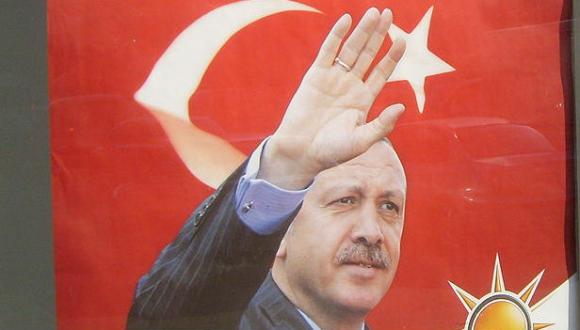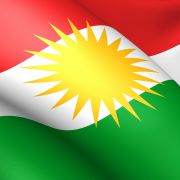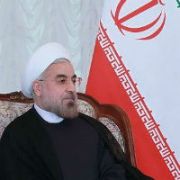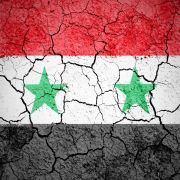The Alevis in Turkey amid a Growing Sectarian Rift
The Alevis in Turkey amid a Growing Sectarian Rift
by Duygu Atlas
TEL AVIV NOTES, Volume 8, Number 11
Moshe Dayan Center for Middle Eastern and African Studies
 On May 22nd, Uğur Kurt, a 34-year old father of one, was killed by a stray police bullet. Kurt had been attending a funeral procession at a local cemevi (Alevi house of worship) in the Okmeydanı neighborhood in Istanbul, when the police confronted a small group of anti-government protesters nearby. A week later on May 30, Elif Çermik, a 64 year-old woman who had suffered a heart attack due to the effects of tear gas at an anti-government rally in Istanbul late December, passed away. Both Kurt and Çermik were citizens of the Alevi faith. In fact, all seven of those who have been killed since the beginning of the Gezi Park protests last summer were Alevis, which has led many to search for an explanation. One may argue that a combination of domestic and regional factors, namely Prime Minister Recep Tayyip Erdoğan’s increasingly sectarian rhetoric and the crisis in neighboring Syria, have contributed to a greater Alevi presence in the anti-government protests.
On May 22nd, Uğur Kurt, a 34-year old father of one, was killed by a stray police bullet. Kurt had been attending a funeral procession at a local cemevi (Alevi house of worship) in the Okmeydanı neighborhood in Istanbul, when the police confronted a small group of anti-government protesters nearby. A week later on May 30, Elif Çermik, a 64 year-old woman who had suffered a heart attack due to the effects of tear gas at an anti-government rally in Istanbul late December, passed away. Both Kurt and Çermik were citizens of the Alevi faith. In fact, all seven of those who have been killed since the beginning of the Gezi Park protests last summer were Alevis, which has led many to search for an explanation. One may argue that a combination of domestic and regional factors, namely Prime Minister Recep Tayyip Erdoğan’s increasingly sectarian rhetoric and the crisis in neighboring Syria, have contributed to a greater Alevi presence in the anti-government protests.
The Alevis are Turkey’s largest religious minority, constituting nearly one-third of Turkey’s 75.6 million people. Approximately one-third of Alevis in Turkey are of Kurdish origin, which includes speakers of both Kurmanji and Zaza. The Alevi faith is not recognized by the state, and neither are Alevi houses of worship (cemevi), which are classified as cultural centers. As such, Alevi religious institutions do not receive any government funding.
While most Alevis consider Alevism as a distinct faith, the Muslim religious establishment in Turkey considers them a heterodox Islamic sect. An eclectic faith with mystic and pre-Islamic elements present like Shamanism, Alevism does not share the usual characteristics of Sunni Islam. Most Alevis do not fast during Ramadan; they conduct their rituals in cemevis intead of mosques; and there is no segregation between men and women during worship, which includes music and ritual dance, known as semah. Their religious practices led to their persecution as heretics during the Ottoman period. Under the secular Turkish Republic, Alevis were blacklisted and discriminated against for their leftist political orientation and the large number of Kurds within the Alevi community.
The Alevis’ traumatic experience with the state dates back to the early years of the Republic. In 1938, the authorities used extreme measures to suppress the rebellion in the Alevi Kurdish (Zaza) district of Dersim and bring the recalcitrant region under state control, killing and relocating thousands of Dersim residents in the process. In the tense atmosphere of the 1970s, during which Turkey was on the brink of civil war between leftists and rightists, the Alevis, who had leftist political leanings, were targeted by ultra-nationalists.
An unfortunate example was the Maraş Massacre of 1978, which resulted in the murder of over 100 Alevis. During the 1990s and amidst the rising tide of political Islam, Alevis lived through two more massacres, often attributed to the “deep state” that sought to consolidate secularist state power by attempting to instigate an Alevi-Sunni confrontation. On July 2, 1993, thirty five intellectuals, most of whom were Alevis, were murdered when their hotel was set on fire by a mob of Islamist radicals at an Alevi festival in the central Anatolian city of Sivas. The twentieth anniversary of what came to be known as the “Madımak Massacre” left an even deeper scar on the Alevi community, when the courts declared that the case was dropped because the statute of limitations had expired in 2013.
Two years after the Madımak tragedy, in 1995, the Alevi predicament was in the public eye once more. This time it was the predominantly Alevi neighbourhood of Gazi in Istanbul. In the “Gazi Quarter Incident,” an armed attack by unknown assailants killed two people and the ensuing unrest led to fifteen more deaths.
Today, the Alevis again find themselves singled out by the state. The current Alevi frustration is due to Prime Minister Erdoğan’s divisive and inflammatory sectarian rhetoric. In various speeches delivered at rallies in the run-up to the recent general and local elections, Erdoğan’s rhetoric emphasized the Sunni-Alevi divide, which served his immediate political purpose of maximizing electoral support among his Sunni base. Erdoğan repeatedly pointed out that the leader of the main opposition Republican Peoples’ Party (CHP), Kemal Kılıçdaroğlu, is an Alevi, in an effort to undermine the credibility of his party, which the Alevis have traditionally supported.

Pictured: The distribution of Alevis by Turkish province. Courtesy of Wikimedia Commons.
Alevis are also rankled by the AKP government’s disregard for historic Alevi sensitivities. The government decision to name a bridge under construction in Istanbul after the Ottoman sultan, Yavuz Sultan Selim, who killed many Alevis during his military campaign against the Persian Safavid Empire in the sixteenth century, is a fitting example. While promoting Turkey’s Ottoman heritage, the AKP government managed to offend and outrage the Alevi community.
In addition to Erdoğan’s increasingly sectarian rhetoric in domestic politics, which emphasizes Turkey’s Sunni character at the expense of other ethnic and religious particularities, the Alevis are also increasingly disconcerted by Turkey’s foreign policy decisions, which appear to be shaped by Erdoğan’s Sunni worldview. In Egypt, Erdoğan backed the Muslim Brotherhood and his emotional response to the toppling of the Morsi regime even caused a diplomatic crisis between two countries. Erdoğan’s pro-Sunni stance has become especially evident during the crisis in Syria. Since the outbreak of the Syrian civil war, Erdoğan has adopted a hawkish approach toward the Asad regime and given support to the Sunni rebels. This, however, has had a damaging impact on Turkey’s Alevis. The alleged link between the Alevis and the Syrian Alawites has caused many conservative Turkish Sunnis to accuse the Alevis of supporting the Asad regime.
Moreover, the large numbers of Syrian refugees in Turkey has exacerbated the security situation in the Alevi towns bordering Syria, putting an additional strain on the Alevis residing in these towns. In the midst of the crisis in Syria, there have been reports of assaults on Alevi homes and clashes in Alevi neighborhoods. The Alevi community has voiced its concern that Erdoğan’s excessive use of sectarian rhetoric was encouraging physical attacks on the Alevis.
Looking back at the AKP’s three consecutive terms in office, its recent emphasis on sectarian rhetoric seems to be a departure from the pluralistic and inclusive approach that it had adopted during its first and second terms. In addition to the Kurdish issue, the AKP government moved away from its predecessors’ traditional denial and publicly discussed many of Turkey’s historically taboo issues, such as Turkey’s treatment of its minorities. As part of this novel approach, Erdoğan publicly apologized in November 2011 for the 1938 Dersim massacre. The AKP government also launched an “Alevi opening” in the summer of 2007 to address Alevi demands such as the official recognition of their houses of worship, the exemption from or removal of compulsory primary school courses on religion based on Sunni Islam, and the abolishment of the Directorate of Religious Affairs (Diyanet İşleri Başkanlığı), which, according to the claims of Alevi organizations, works to subsume Alevis under Sunni Islam by sending Sunni imams to Alevi villages.
Seven years later, however, the Alevi opening has failed to produce a remedy to Alevi grievances. Similarly, the latest “democracy package,” which was unveiled last November, also proved to be a disappointment for the Alevis, as it did not respond to any of the core Alevi demands.
Compared to its previous two terms in office, the AKP government’s third term has often been described as increasingly authoritarian and intolerant of any expression of dissent, as evidenced by the heavy use of force against demonstrators during last year’s Gezi Park protests. Reinforced by successive electoral victories, many observers argue that Erdoğan has interpreted the strong mandate he received from the people as a green light to pursue an even more conservative agenda and engineer a new Turkey based on a Sunni Muslim majority. It is widely believed that with the Kurdish question currently on the back burner thanks to the ongoing peace process between the Kurdish PKK and the state, Erdogan is seeking to consolidate his Sunni constituency by accentuating the sectarian cleavage in society ahead of the upcoming August presidential elections.
As a result, Turkey is divided along Alevi-Sunni and secular-conservative lines. In the likely case that Erdoğan continues fanning sectarian flames and rejects compromise with those who oppose him, Alevis included, Turkey’s sectarian rift runs the risk of becoming a dangerous chasm.
Duygu Atlas is a junior researcher and the program coordinator of the Moshe Dayan Center for Middle Eastern and African Studies’ (MDC) Süleyman Demirel Program for Contemporary Turkish Studies at Tel Aviv University.
TEL AVIV NOTES is an analytical update on current affairs in the Middle East, published by TAU's Moshe Dayan Center for Middle Eastern and African Studies, with the support of the V. Sorell Foundation.






